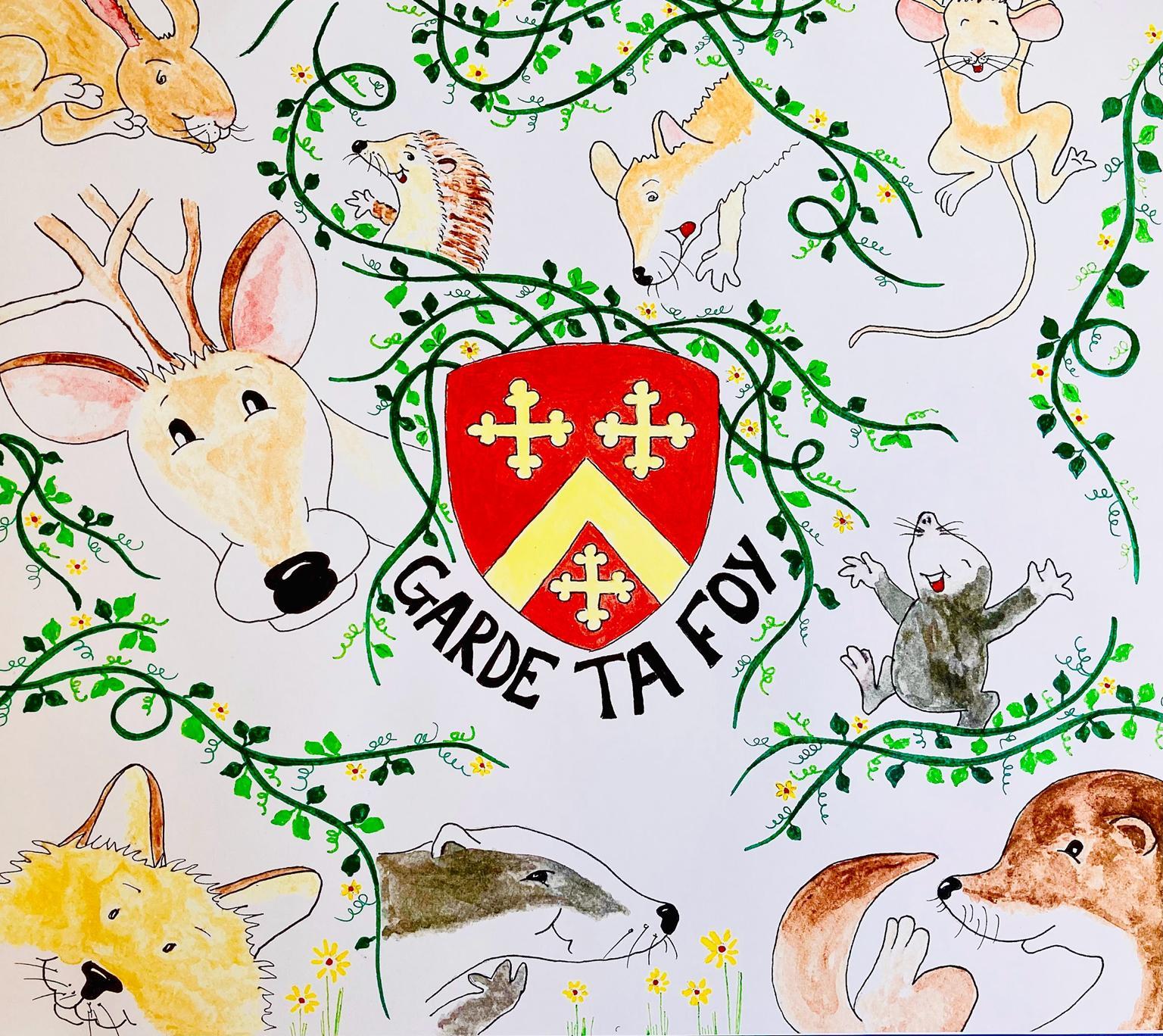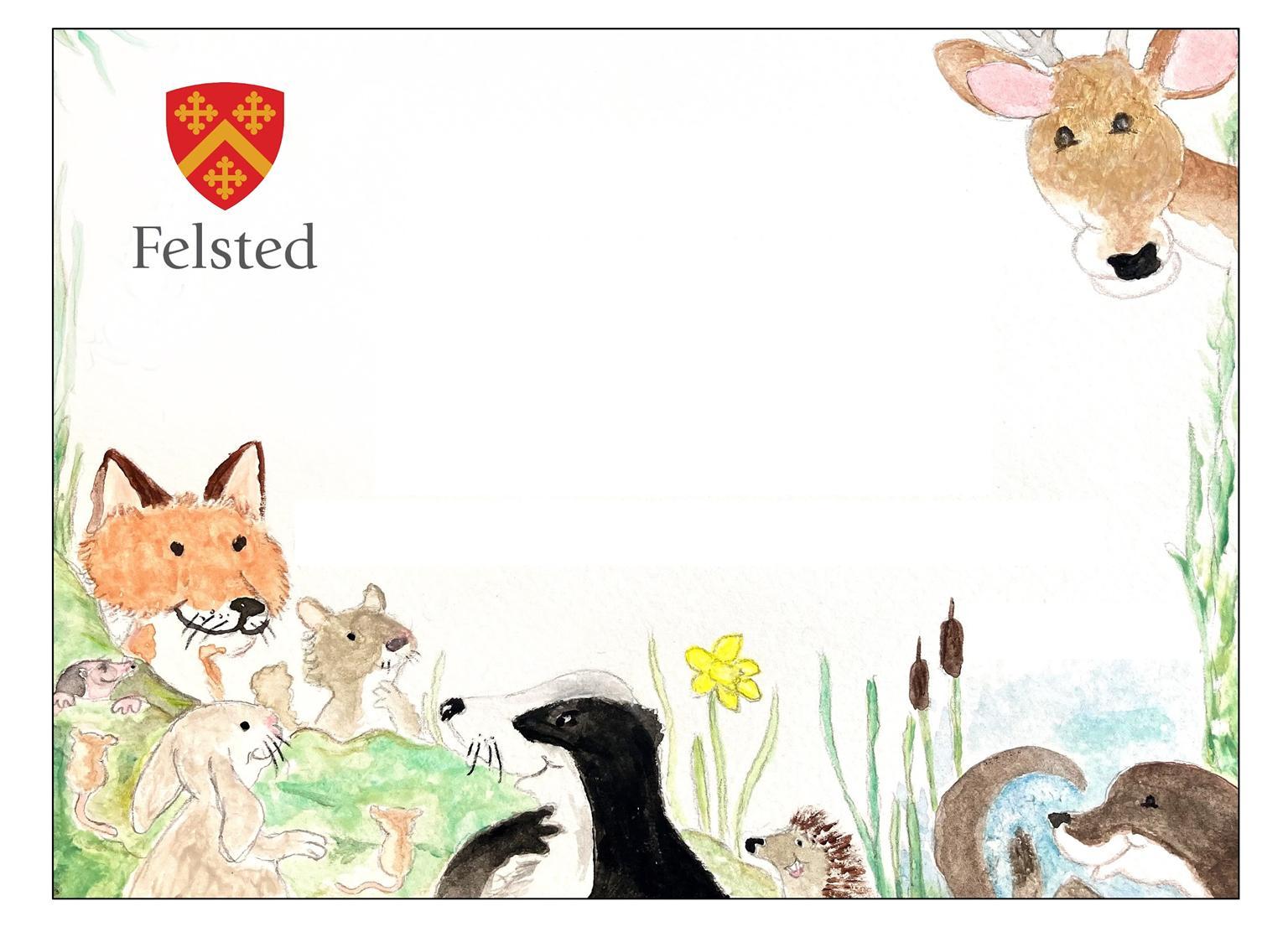

Welcome to Year 1
Welcome to Felsted School’s Pre-Prep
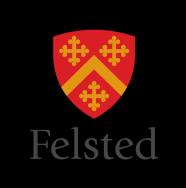
“ I look forward to welcoming you to Felsted School’s Pre-Prep. Our aim is to create a positive learning environment, where your child will thrive and grow. We intend to have a lot of fun along the way!
You will see me at the gate every morning and every afternoon at the end of the school day. If you would like to meet with me, please contact Mrs Boreham in our Pre-Prep office to make an appointment shoffice@felsted.org

Pre-Prep office
Please contact our Pre-Prep office for any questions about school, including clubs and events or to make appointments. Please inform us if your child is unwell and will not be in school.
All school events can be found on our termly calendar on our school website: www.felsted.org/parents/school-calendar
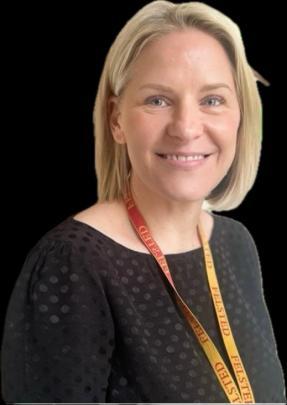
Mrs Boreham
Mrs Atkins
Year 1 Classes
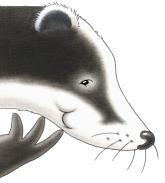

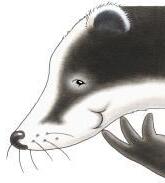
Class teacher: Mrs Rooney
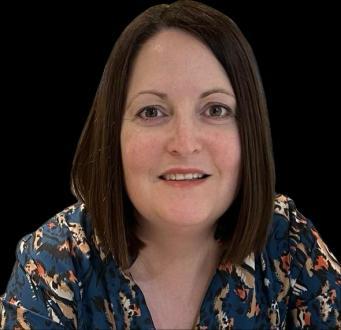
Class Teaching
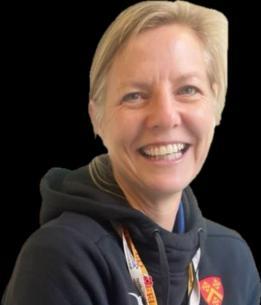
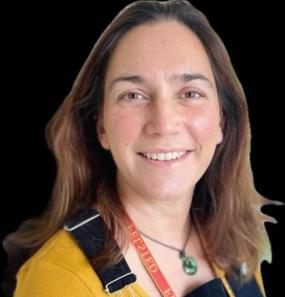
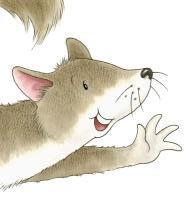
Badger Class Squirrel Class
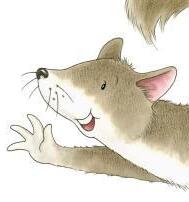
Class teachers:
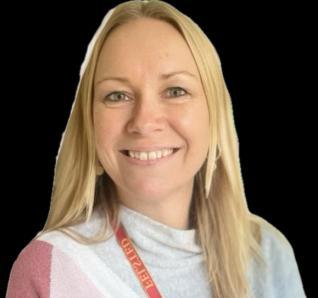
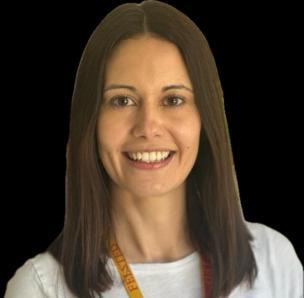
Class Teaching Assistant: Mrs
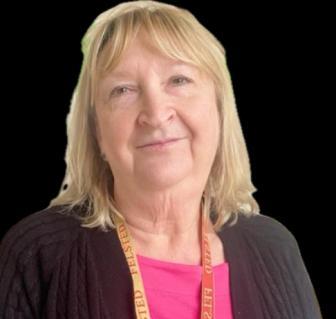
Mrs Matthews & Mrs Buckingham
Assistant: Mrs Pickford and Mrs Hill
Groves
Why we mix classes every year….

It is important that the children expand their current friendship groups and get to know as many children across the year group as they can - it's great for parents to get to know more families too!
As the children move through the school, the arrangements for lessons change and the children begin to be in different classes for different subjects. If the children are familiar and comfortable with a range of other children across the year group, this helps them to feel more confident when they are in classes that may be different from their friends.
In Pre-Prep, the year group teachers plan together so there will be lots of opportunities for the children to work with others from classes across the year group. Playtimes are a time when the children can choose whomever they wish to play with, with many children choosing Year 1 and Year 2 children. The children also mix up at After School Clubs and Woodlanders, so there are plenty of times built into the day to be with certain friends.
We understand that this can feel quite an anxious time for parents, but please be assured that the teachers know the children very well and the transition process is carefully planned. To begin with, the children will have opportunities to interact in different groups. Your child may come home saying they were in a new class, but this does not mean that the classes have been set yet. We try a few combinations and then review the interactions to make sure the children are happy and work well together.
Our aim is to create supportive and effective working relationships between the children.
We are aware that some children may feel worried that a change will happen so this is also factored into the arrangements.
Beginning and End of the school day

➢ We run a Breakfast Club from 7:30am – 8am at an additional cost
➢ The gate opens at 8:00am for parents who need an early drop off
➢ Between 8:00am – 8:10am the children will wait in the hall until it is time to go to class at 8:10am. After 8:10am, the children will go straight to their classrooms independently
➢ We encourage the children to do ‘Kiss and Drop’ and come into school independently
➢ From 8:10am, parents are asked to say goodbye to their child at the front gate. If your child needs assistance to get to their classroom, a member of staff is able to help
➢ School finishes at 3:20pm. Parents walk around the building to the back playground, where the teachers will check the children are collected by an approved adult
➢ After school clubs sign out at the front gate at their given end time
➢ Woodlanders - ring the gate buzzer and wait outside by Toad Hall
Timetable

Uniform
Wear the navy sweatshirt and joggersDon’t forget wellies
Bring the navy rucksack for your drink and hat
Uniform - see list for Winter/Summer uniform
Uniform - see list for Winter/Summer uniform
Wear the maroon PE Kit all day.
Bring the maroon rucksack for swimming kit
Return any badges given out
Marvellous Manners, Wonderful Waling, Kindness Star, Playground
Uniform
The children will be fitted for their school uniform at our school Tailor’s Shop.
The children should wear their ‘day’ uniform to school, apart from the following days:
● Swimming day - wear the maroon PE and Activities Kit
● PE - wear the maroon PE and Activities Kit
● Forest school - wear the navy Forest School Kit. We also ask that the children wear navy waterproof dungarees (a link to an example can to found here)
There are 3 school bags:
Black book bag - Bring this to school every day. This should have the reading book and zippy wallet inside for all homework, letters home and other information.
Maroon rucksack - This should be used on swimming days for Swimming Kit.
When your child is attending an After School Club, they should also use their burgundy rucksack to bring their kit into school. The children will get changed at the end of the school day.
Note: If your child is wearing their PE and Activities Kit to school as it is a swimming or PE day, they will not need to get changed.
Some clubs require a specialist kit, such as Karate, Judo and Ballet. Please use the burgundy rucksack to bring this kit into school.
If this rucksack is being used for Swimming Kit, then please use the navy Forest School rucksack for After School Activities Kit
Navy rucksack - This should be used on Forest School days to carry water bottles, hats, gloves etc to the forest
A school coat should be worn everyday - we never know when it may rain!
School hats - Please make sure your child has their school woolly hat in the winter and school cap in the summer


Book bags
The children should bring their school book bag into school every day. This will be used to carry reading books and homework folders.
To help your child identify their book bag, please attach a name clearly. Some children like to add a keyring to help them find their bag easily. Please ensure this a sensible size and not precious.
Please do not attach numerous or large keyrings, as this make it very difficult to store the bags in the classroom storage boxes.
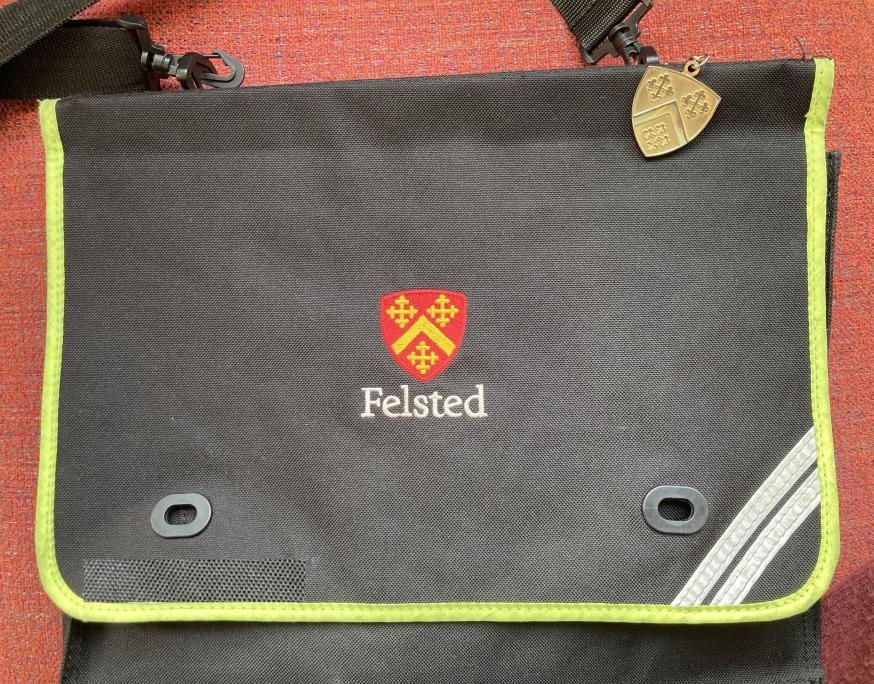

English Lessons

English lessons are taught through a creative curriculum based upon a topic or a text, for example, we launch our ’Dinosaur’ topic through a hands-on role-play session in the hall where the children meet a ‘real’ dinosaur. We then use different texts to support the lesson objectives.
Our topic approach means the children learn in a holistic and creative way, which incorporates History, Geography, Art, DT and Drama. This enables the children to fully immerse themselves in a given topic.
Talk for Writing is used throughout the year, as a teaching tool when learning a specific genre - for example story writing or instruction writing.
• As part of this process, children are shown a model text which they see both in a pictorial and a written format. The children learn the text off by heart using actions, so that it can be recited out loud.
• Next, the model text is innovated during a whole class shared write, so that elements of the story are changed.
• Finally, the children independently plan, then write, their own adapted version.
This highly scaffolded way of learning, is a wonderful tool for making the writing process structured, while still affording many opportunities to stretch and challenge the children’s understanding and use of language.
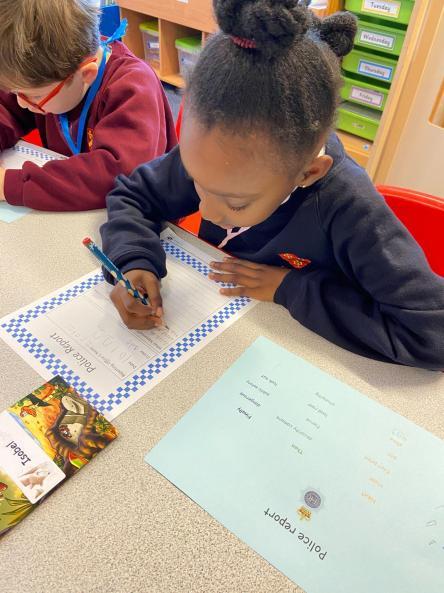
Phonics

❖ The children have daily phonics lessons, which include blending for reading and segmenting for spelling. We use ‘Monster Phonics’ teaching resources and books.
❖ Children have the opportunity to write words which build up to sentences. This includes independent writing and sentences that have been dictated to them which include words containing the phoneme being taught.
❖ Children are encouraged to ‘have a go’ at spelling words phonetically. A range of strategies are introduced to help the children make a plausible attempt, based upon their phonic knowledge taught in Reception.
❖ The books in our Pre-Prep reading scheme are linked to the phonic phase progression as each phonic sound is introduced.

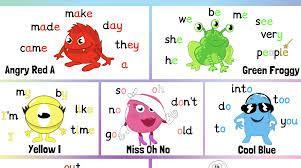
Handwriting
Letter formation is taught as follows:
During phonic and handwriting lessons, the children are encouraged to use their preferred hand and to sit correctly:
Sit with base of back supported in the chair.
Both feet on the floor
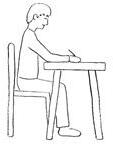
Skills taught:
Pencil held between first finger and thumb. Supported by second finger
Make sure the pencil is not held too close to the nib or too far up the pencil

Left handed pupils will sit on the end of a table so their left-hand side is not next to a right-handed pupil – this will prevent elbows bumping.
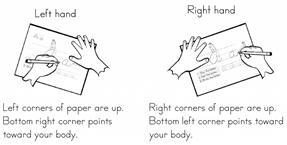
★ To write all letters accurately starting and finishing in the right place.
★ To hold a pencil correctly
★ To sit correctly at the table when writing
★ Always use capital (upper case) and lower case correctly
★ Always have spaces between the words
★ To sit writing on the line
★ To write ascenders clearly above the line and lower case letters and descenders below the line
★ To maintain neat, well-formed writing for a paragraph or more
★ To begin to practise joining letters

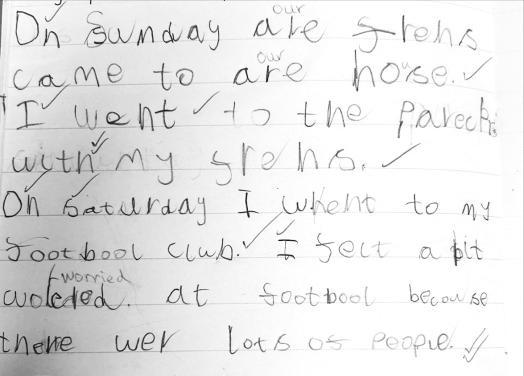
Handwriting continued…

Year 1 children focus on formation of letters to ensure their handwriting script becomes fluent, with ‘flicks’ in preparation for joined up writing in Year 2.

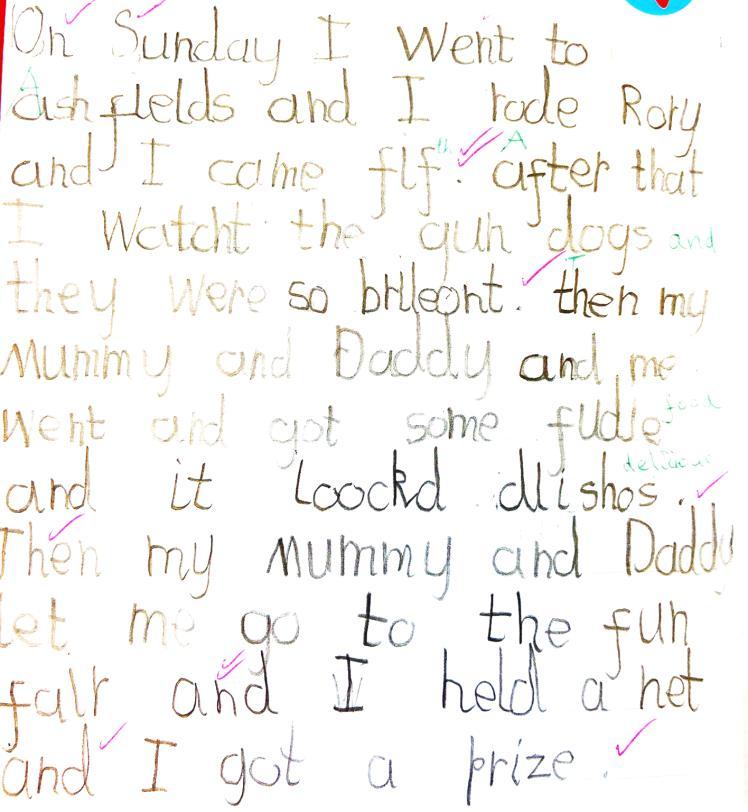
Example of Year 1 Summer term writing.
Reading

Children will work their way through the Pre-Prep reading scheme, which links to our phonics lessons and the progression of sounds taught.
Emphasis is placed on decoding and comprehension skills.
The strands of comprehension are:
1. Retrieval
2. Inference
3. Prediction
4. Sequencing
5. Vocabulary
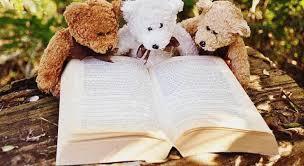
Children will have opportunities for reading throughout the school day. This may be reading to an adult on a 1:1 basis; Reading in a group; Reading comprehensions; Online books and quizzes; Reading from the interactive whiteboard; Independent reading and library sessions.
Children will learn to talk to a peer or adult about what they like about a text, as well as retelling stories more independently (using pictures to help them).
We endeavour to help children to make links between characters in books and story plots. Children are encouraged to draw on their own experiences, where relevant, to comment on how a character is feeling.
Year 1 will have an opportunity to visit the library to choose books during the week.
Marking Symbols
The children are encouraged to ‘have a go’ at writing. Phonetic spelling is celebrated and the children are taught how to spell key words.
Marking symbols are used to show the children where they have been successful and what their next writing target is. These symbols are used as prompts when the children begin a piece of independent writing.

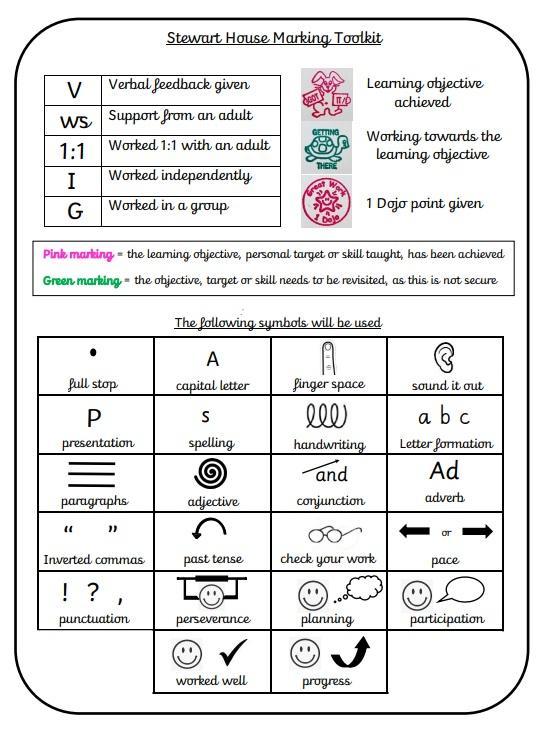
Maths
We use a maths mastery approach to teaching maths. Children are encouraged to use a range of ways to solve problems and explore mathematical concepts practically before moving on to the more formal recording in workbooks. Practical equipment used includes ten frames, Dienes blocks, number lines, multilink cubes and part-whole diagrams.
Maths lessons also include the ‘ White Rose’ scheme of work, which adopts the maths mastery approach to learning.
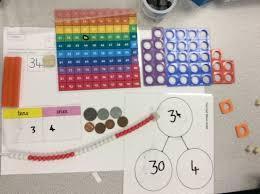

Number Time
The children have daily ‘Number Time’ sessions. These 15 minute sessions focus on developing the children’s mental fluency skills in maths.
Number Time includes:
● Number bonds
● Doubles
● Halves
● Addition and subtraction facts
● Counting in 2s, 5s and 10s
● Division (grouping and sharing)
● Multiplication (groups of and lots of)
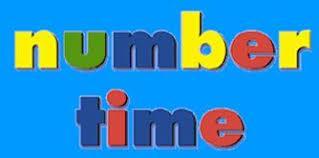

Science

In Year 1, science lessons encouraged the children to experience and observe the natural and humanly-constructed world around them. Science lessons complement the topic taught which means some topics may have a stronger science focus than others.
The children develop their understanding of scientific ideas by observing changes over a period of time, noticing patterns, grouping and classifying things, carrying out simple comparative tests and finding things out using books and the internet.
The children are encouraged to be curious and ask questions about what they notice. The children are encouraged to use simple scientific language to talk about what they have found out.
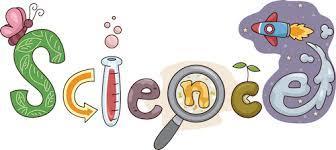
Our Creative Curriculum
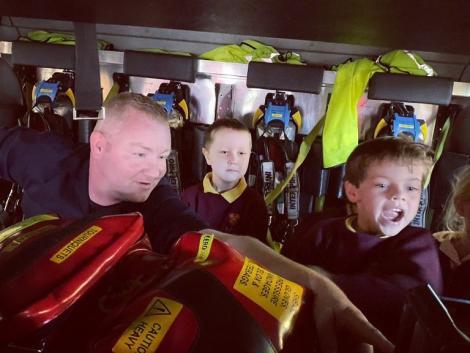

Children learn best when they don’t realise they are learning, that’s why most of your child’s learning will be topic or theme based explored through practical and purposeful play.
Each topic is introduced with a tangible experience such as a visit out of school or an experience in school, which acts as a reference point. Activities follow which encourage problem solving, enquiry and collaborative work.
The year group topics provide a ‘lived’ experience for the children to relate to and connect their learning experiences together. This helps to overlap learning and to make connections, supporting understanding and reasoning skills.
Teaching Diversity
We ensure that our topics and resources are inclusive and represent the diverse world we live in. Families are encouraged to share their cultures and traditions with us at school.
We also follow the Think Equal programme which has been created by global leaders in the fields of education, psychology, human rights and neuroscience, who have written age-appropriate picture books and accompanying resources to promote discussion, thought and learning focusing on social and emotional development, inclusivity and respecting each other. The aim is that this will enable learning with will have lifetime effects.
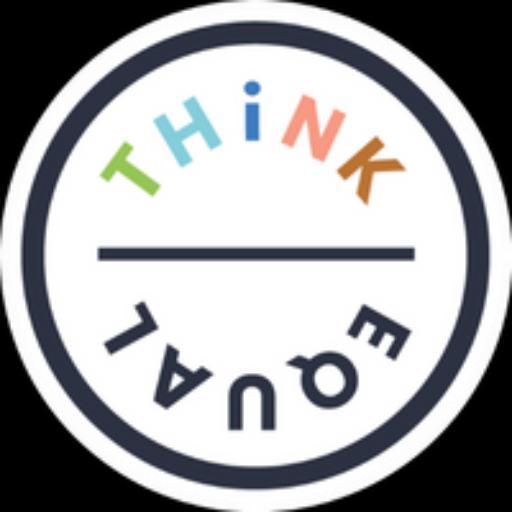
Religious Education
In Year 1 our RE lessons follow the themes of: Special people
Special
symbols and objects
Special things in nature
We use an enquiry-based model, so that children’s critical thinking skills can be developed and their motivation to learn increased. Over the academic year the children will build upon their knowledge, understanding and empathy of people and their beliefs, religious or otherwise.
This approach takes very seriously the philosophy that children are free to make their own choices and decisions concerning religion and belief. RE does not try to persuade, but rather to inform and develop the skills with which independent evaluation can take place

Personal, Social, Health and Economic Education

In Year 1 our PSHE lessons focus on three key themes. These include:


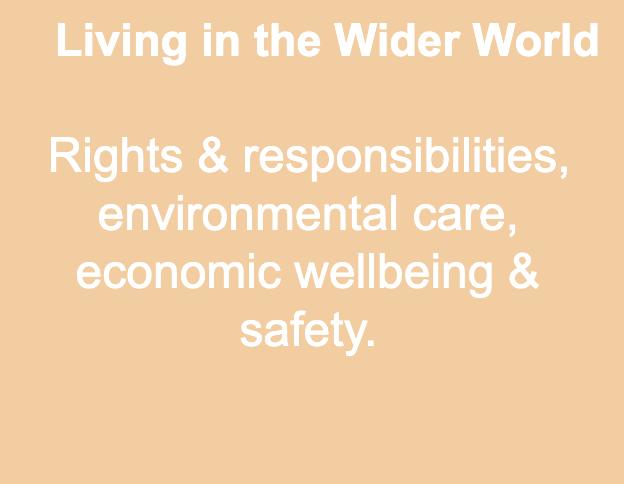
Relationships and Health Education

As part of the School’s Personal, Social and Health Education programme and in line with the latest Relationships & Health Education Guidance from the Government (click to read the guidance),
Pre-Prep pupils will explore the three core themes in their PSHE lessons:
❖ Health & Wellbeing,
❖ Living in the Wider World
❖ Relationships.
The term ‘relationships’ covers all relationships that we, as humans, have with others - family members, friends, the relationships children have in school with their peers and members of staff.
With Relationships & Health Education now becoming a statutory part of the curriculum, it remains important that all of our pupils are taught about relationships in an engaging, meaningful and age-appropriate manner. Through these sessions, Children will become aware that we are all different and that this is a further opportunity to celebrate diversity.
Year 1 children will learn more about topics such as:
● Working collaboratively with others
● Being kind and treating others with respect
● Bullying and unkind behaviours
● Understanding their own and others’ emotions
● The importance of families and friends in our lives
● Different family structures

● Personal Safety & Privacy. We will educate pupils about the importance of taking care of their own bodies (in terms of personal safety and privacy). When it comes to the naming of body parts we will use the correct terminology and the NSPCC Pantosaurus approach will also be used to support this
Swimming
Year 1 children will have a swimming lesson once a week on a Friday. Our swimming teachers are Mrs Green and Mrs Lighten.
Please make sure your child’s Swimming Kit is brought into school on a Friday using the maroon school rucksack.
Your child should wear their maroon PE Kit to school on a Friday as this is much easier to change out of/in to.
It is important that the children bring in their Felsted hat, gloves and a scarf in the Autumn and Spring Term.
Our swimming lessons aim to...
● Teach the children an important life-long skill
● Provide a meaningful and safe swimming experience for children
● Reinforce the stated aims of the school in relation to physical education the personal and social development of children and their health and wellbeing

During Spanish lessons across Pre-Prep, with each year group will learn about their family, animals, colours and counting through songs and games, building up to beginning to speak in sentences.

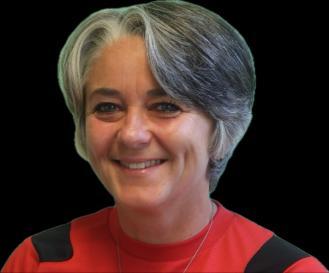
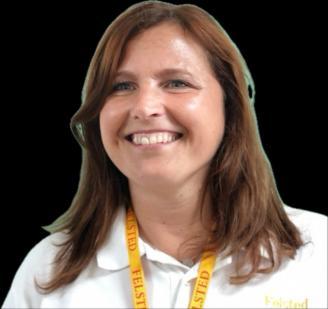

Mrs Green
Mrs Lighten
Physical Education

PE is taught by our Prep School PE teachers. PE for Pre-Prep contributes to the overall education of our children by helping them to lead full and valuable lives through engaging in purposeful and highquality activity. It promotes active and healthy lifestyles, physical skills, physical development and knowledge of the body in action. PE enables children to learn confidence, perseverance, organisation and a positive approach to team spirit.
In Year 1, the children have a weekly PE lesson on a Monday Please ensure your child
Wears their maroon PE and Activities kit
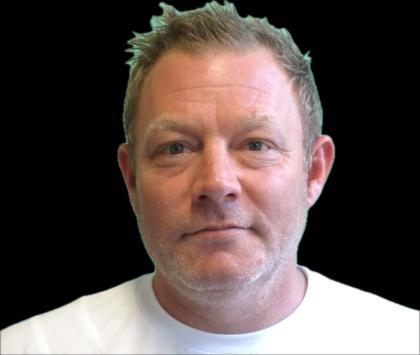
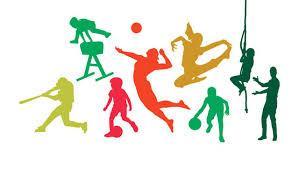
Mr Holt
Music
Each week the children have a Music lesson led by Mrs Clarke. The Pre-Prep children begin their musical journey by having as much fun as possible with singing, playing instruments, composing their own music and performing to different audiences. The children learn through different musical techniques - namely 'Kodaly' and 'Dalcroze' methods of teaching music. These aim to improve the all round musicality of children through whole body movement and aural techniques.
Exploration of sound through everyday objects, our voices, bodies and musical instruments, plays a vital role in the discovery of music in the younger years. Percussion instruments are enjoyed in most lessons, which help the children explore the 'musical elements' of rhythm, dynamics, pitch, tempo and duration.
The children learn through different musical games and songs which improve their confidence, intonation and musicality. Singing and performance plays a big role in music in Pre-Prep-the children sing in assemblies, productions, League Music and concerts and come together with the Prep School to sing in Chapel each term.
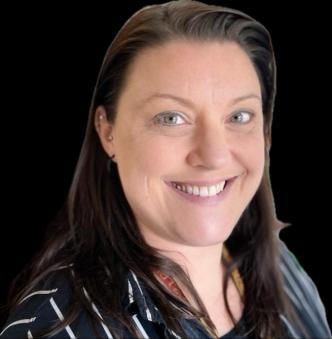


Mrs Clarke
Forest School

The children have regular opportunities to attend our own Forest School site adjacent to the Senior School every other Tuesday.
When it is your child’s turn to go to the forest, they should wear their navy sweatshirt and joggers and bring in wellies and their navy waterproof dungarees as the children can get muddy and wet! Please bring in the navy rucksack, so a water bottle can be carried to the forest.
A spare pair of socks is essential!
Our qualified Forest School leader is Mrs Pickford, who plans a range of activities which often relate to the learning in school. Children are given the chance to use tools, such as potato peelers for whittling. Spades, trowels and forks can be used for digging. Magnifying glasses and pots are provided to help the children hunt for minibeasts.
Activities are child-led but closely supervised - the children are encouraged to risk-take in a controlled environment.
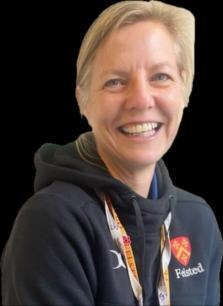
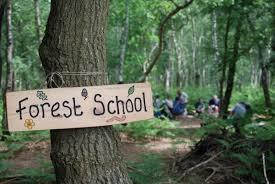
Mrs Pickford
Assessment

The children’s learning will be assessed throughout the year for all subjects.
Teachers will use the National Curriculum as a guidance for the criteria for these assessments.
Parent/Teacher meetings take place in the Autumn and Spring term to discuss progress towards the national standards. At the end of the academic year in the Summer term, parents will receive a report based on these assessments which indicate if your child is working:
● Working towards the national year group expectations
● At national year group expectations
● Above national year group expectations
If your child is finding aspects of learning challenging, support will be planned in class. Our SENCO Mrs CliffordSmith supports and guides the Pre-Prep teachers and Teaching assistants and is also available to meet with families if required.

Homework

It is really important that your child has an opportunity to rest at home and to lead their own play and interests. Homework in Year 1 is set on a Friday and should be returned by the following Wednesday.
Homework will include:
★ Reading each night - this will be the reading book sent home to practise phonic sounds and retelling stories. This could also be listening to a story at bedtime. Some families find reading at night works for them. Others find it is better to read in the morning as their child is too tired at bedtime. There is no set rule for when this should happen, but regular reading is proven to be extremely beneficial to a child’s development.
★ Talking to your child - Exploring language, talking about what happened that day, recounts or explanations are key skills to help at school. Taking time to talk without distractions will support your child’s communication and language skills.
★ Maths - Consolidation of topic taught.
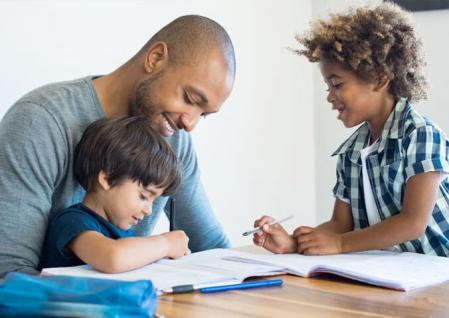
Positive behaviour

All behaviour is a form of communication. Positive behaviour is modelled and recognised in class and at playtimes, through praise and explanations.
Consistent, clear expectations help support the children to know what behaviour is expected of them and the impact of this behaviour on themselves and others. It is essential that adults understand the causes of challenging behaviour and use proactive approaches to support the children.
When things go wrong, the adults talk to the children in an age appropriate manner to create a plan to restore the respectful, positive behaviour promoted at school and to help the children to manage their self-control and self-regulation. Parents will be involved in this process to reinforce a consistent and collaborative team approach between school and home.
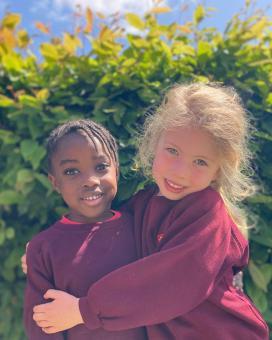
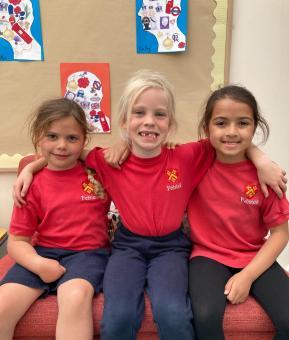

Rewarding Positive behaviour
Class rewards include the following…
Dojo points Class animal Manners Cup Gold sticker

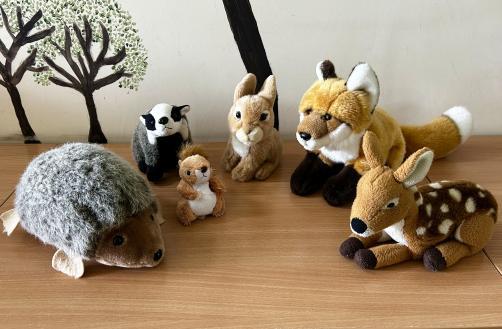
To help promote desirable behaviour and social interactions, the children are awarding virtual ‘Dojo points’.
These are accumulated over time and Dojo certificates are awarded when the children reach a target number of points.
Each class has a class animal which is awarded each week to a child to take home for the weekend.
The class animal is returned the following week.
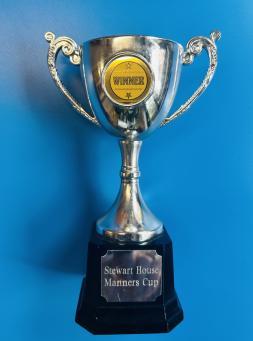
Each week, a class is awarded the Manners Cup for a collective effort to be respectful to others.

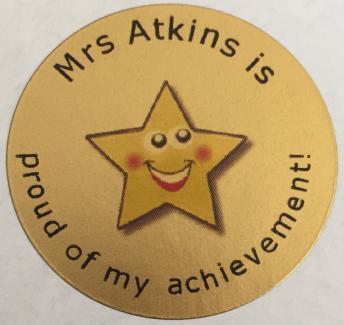
Mrs Atkins awards gold stickers for exceptional effort for both academic and learning behaviour.
We understand that there may be times when undesirable behaviour happens. Our approach is to teach the children to recognise why this behaviour is not acceptable and to help them resolve this, using ‘thinking time’ to reflect on how to put things right, then restorative, adult supported conversations.
Rewarding Positive behaviour
Every week we hold our ‘Award’ assembly where a number of different awards are presented to the children. These include:
Learn Award certificate Badges
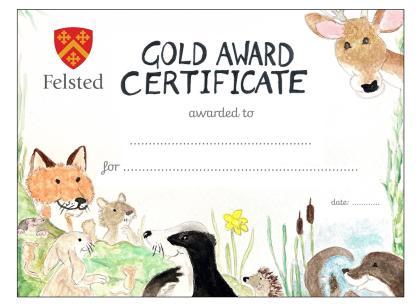
LEARN AWARD CERTIFICATE
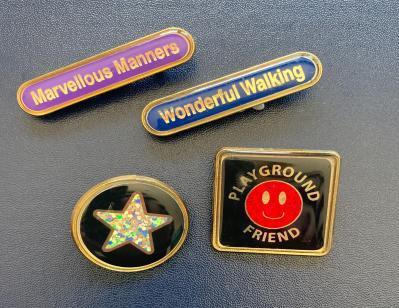
Learn Award certificates are presented for outstanding achievements and working attitudes
Marvellous Manners badges for amazing manners.
Wonderful walking badge for remembering to walk sensibly inside the building or when needed to.
Kindness star badges for consistent kindness.
Playground friend badges for being a great friend to others at playtime.

Creativity Star Fantastic Felstedian tea party invitation
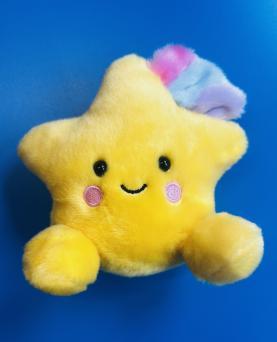
Creativity Star awarded for creative thinking, arts, singing, drama, imagination, building and so much more!
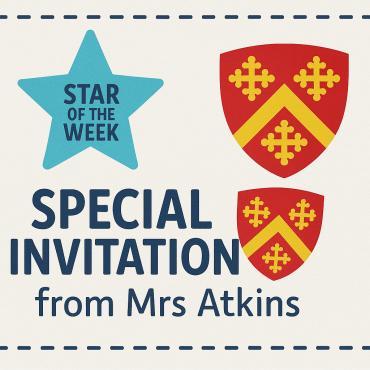
The class teachers nominate a child in their class who is a ‘Fantastic Felstedian’ for demonstrating our Felsted values:
● Welcoming
● Respectful
● Adventurous
● Fun
● Inspirational
A surprise invitation is sent home in the post to a tea party with Mrs Atkins.
Leagues

When your child joins Felsted, they also join a Prep School League. This is their ‘House’ which they support throughout their time at the Prep School. Family members always join the same league so this becomes a family aspect of school.
The leagues are as follows:
Name of League Colour Mascot History
Lord Riche Yellow Rooster
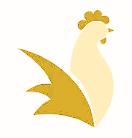
Cromwell Red Scorpion
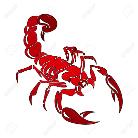
Gaselee Royal Blue Griffin
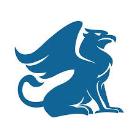
Grignon Green Gorilla

Smythies Sky Blue Lion

Named after the founder of the school, Richard Lord Riche.
Named after Oliver Cromwell who sent his children to Felsted School.
Named after an ex pupil who was a soldier.
Named after an ex headmaster.
Named after a famous ex-pupil who was a bishop.
Opportunities to discuss your child’s learning

Each term, there is an opportunity for families to come into school as follows:
Autumn Term:
Settling in letter sent home from class teacher
Harvest service, Christmas performance
Parent/Teacher Meeting after October half term
Opportunity to look at workbooks
Spring Term:
Parent/Teacher Meeting after February half term
League Music singing event
Opportunity to look at workbooks
Summer Term:
Year group parent event
Sports day
Fete
Written report at the end of the academic year
At the end of the school year, information about Year 2 will be shared with families. This will include an opportunity to meet the Year 2 teachers. The children will have an opportunity to spend the day with their next teacher in Year 2. Classes will be mixed up into new classes for Year 2.
Tapestry
We use an educational software called ‘Tapestry’ to create an individual learning journal for your child.
Tapestry allows you to view observations and learning notes with accompanying photographs. This will keep you informed of the areas of learning your child is working on with an explanation of the learning that took place. Tapestry also allows you to add observations and photographs and share your own comments.


Snacks and Lunch

Our school catering team provide all snacks and lunches at school. A menu for the term is available on our school website: www.felsted.org/parents/menus
All food is prepared on site and we can cater for all dietary needs. Our catering manager Mrs MacDonald can meet with you to discuss your child’s needs in detail.
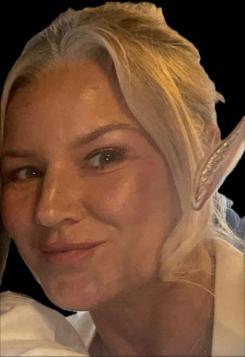
Pre-Prep pupils have snacks each morning and afternoon for example fruit, flapjacks, crackers and cheese etc.
At lunchtime the children walk to the Prep School dining room. The children are served a hot lunch and have salad and fruit available. The children are encouraged to use a knife and fork correctly, with good manners recognised and promoted through stickers and badges.
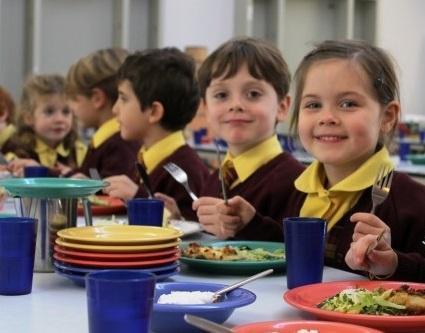
Mrs Jerri Mac Donald
Breakfast Club and Woodlanders
Breakfast Club

Breakfast Club will be held in Toad Hall from 7:30am to 8am Monday to Friday. There are limited spaces available, so parents are asked to book spaces for the days they need. There is an additional cost for Breakfast Club
Woodlanders
Woodlanders is our after-school care club which is staffed by our Pre-Prep teaching assistants. Activities are informal but usually include craft activities, free play, toys and games both indoor and outdoor. There is an additional cost for Woodlanders
Pupils can attend Woodlanders for as many sessions a week as you require them to. Please note you must book the places for the whole academic year. You can book a half session which will run from 3:20pm – 4:30pm, or after an activity until 5.45pm. A full session is from the end of the school day at 3:20 until 5:45pm. You can collect your child at any time before the end of either session.
All pupils attending Woodlanders after a club or for a full session must bring in a packed tea. This must not contain any nuts or eggs. A Woodlanders handbook will be sent via the Pre-Prep office.
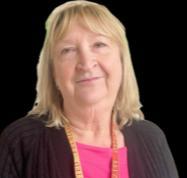
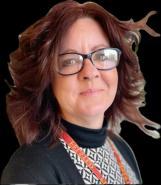
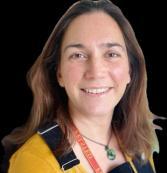
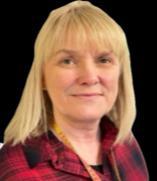
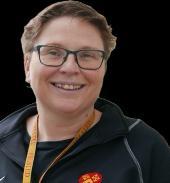

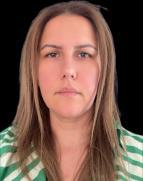

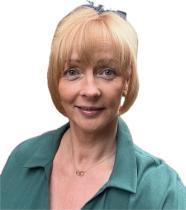
Mrs Groves Mrs Miller Mrs Hill Mrs Norris Mrs Watkinson Mrs Bird Mrs Herban Mrs Lorenzi Ms Stapleton
After School Clubs
After School Clubs
We have after school activities specifically for Reception children which include LAMDA, Street Dance, Ballet, Karate, Multisports, Ballet and Gymnastics.
All information regarding After School Clubs will be sent out by Mrs Boreham from our Pre-Prep office.
Fees are charged on a termly basis. Please refer to the school website www.felsted.org/admissions/fees
PLEASE NOTE:

Your child can wear their PE Kit to their club if it is their PE day and they are wearing their PE Kit to school. Some clubs have special kit.

* The above club list will be confirmed at the beginning of the school year/ term
Communication
If there is anything you need to let us know, then please either write a note in your child’s reading diary or leave a message with the Pre-Prep Office shoffice@felsted.org
Tel: 01371 822616
You may also wish to email the teachers, but please be aware that a response will be made within 24 hours as the teachers are in class during the school day and attend meetings after school.
Follow us on Instagram and Threads
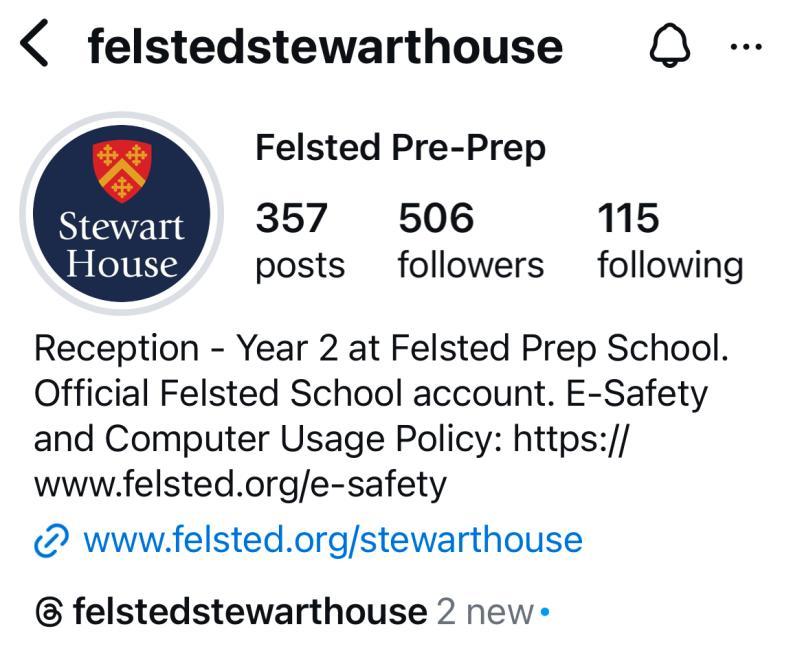

Leadership Team

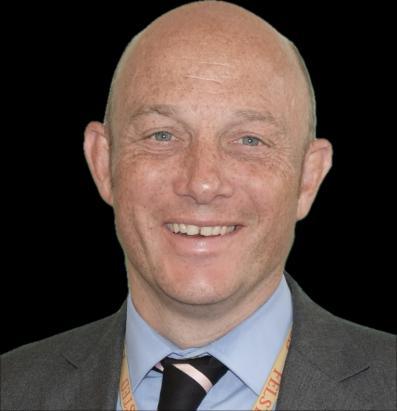
Prep School Head Deputy Head of the Prep School
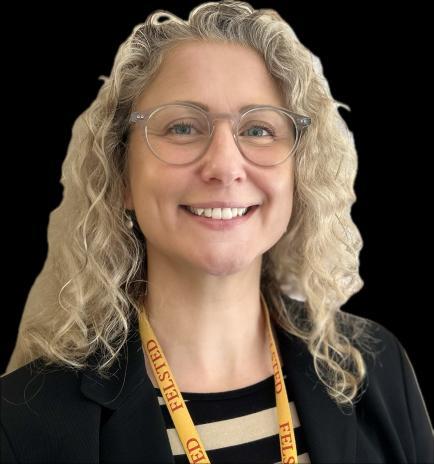
Mrs Cain


Pre-Prep Assistant Head supporting Mrs Atkins with the leadership of the Pre-Prep department
Mrs Norris
Mr Fincher
Mrs Clifford-Smith
SENCO
Wellbeing and Health
Our Health and Wellbeing Assistant is Mrs Morris
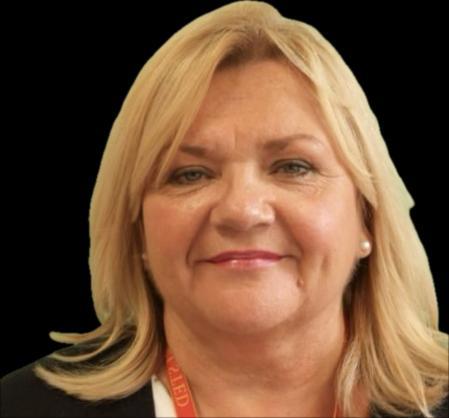
Mrs Morris will contact parents when a child is unwell or to discuss medical requirements.
We call Mrs Morris ‘Matron’

Our School Nurse is Mrs Machell
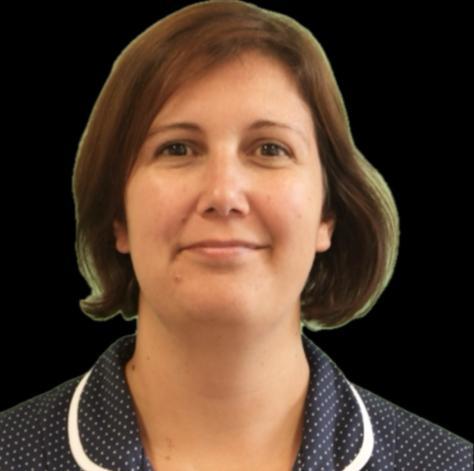
Please contact fpsnurse@felsted.org should you wish to discuss your child’s health.
We call Mrs Machell ‘Nurse Vikki’
Wellbeing Support & Safeguarding
Our Wellbeing Centre is located on our Senior School site. It is a calming hub where all members of the Felsted community can access resources to support their mental health. The decor is natural, the furniture comfortable and the atmosphere calming, with a focus on a sensory experience.
Sometimes pupils have times when they would benefit from play therapy. If this is something you would like to discuss further, our Head of Wellbeing Mrs Jane Miller, can be contacted to discuss your child’s needs. wellbeing@felsted.org
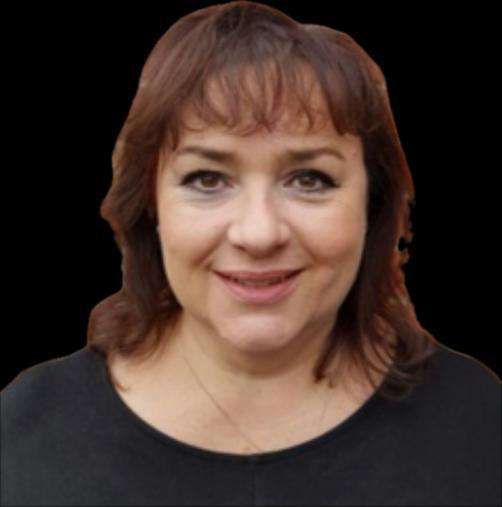
Our Designated Safeguarding Lead is Mrs Nicola O’Brien

www.felsted.org/boarding day/pupil-wellbeing
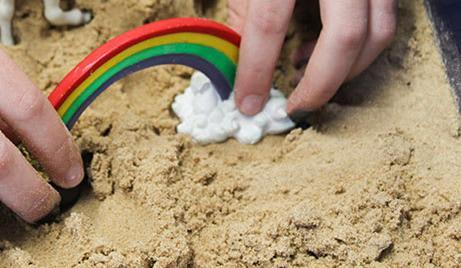
Mrs O’Brien supports pupils and families across the school. Should you need to discuss and concerns or worries you may have please email seniordsl@felsted.org
Or telephone: 01371 822543
Domestic Team
Our domestic team Christie and Mary, keep our site, Pre-Prep, clean and ready for the children to learn each day. You will also see Christie and Mary keeping our children safe outside on our crossings during drop off and pick up.
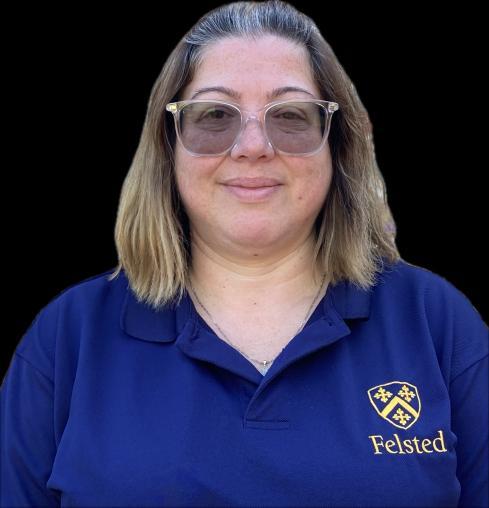
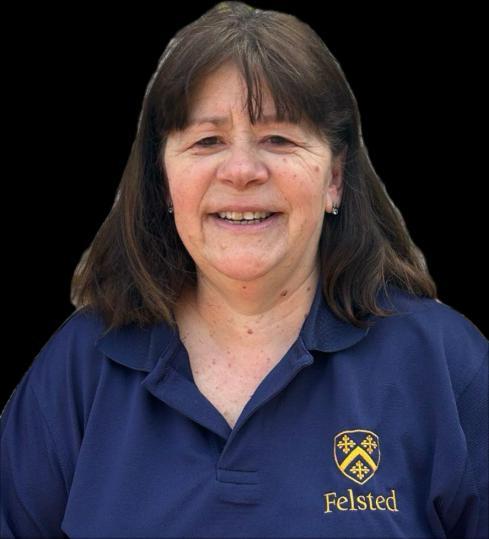

Christie
Mary
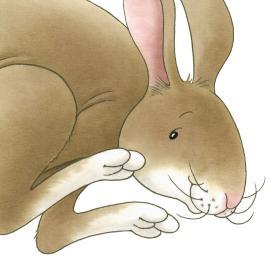
The Pre-Prep team
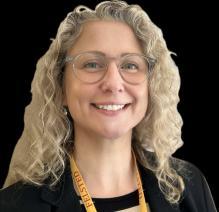

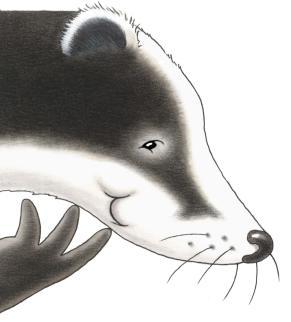



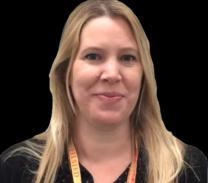
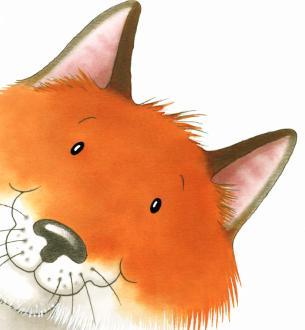


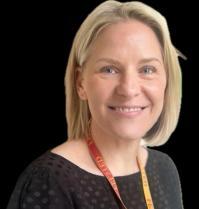
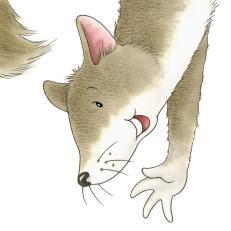


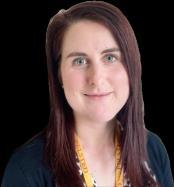
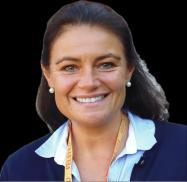
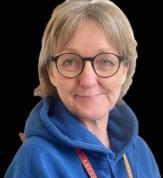

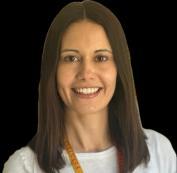



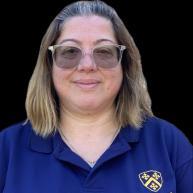

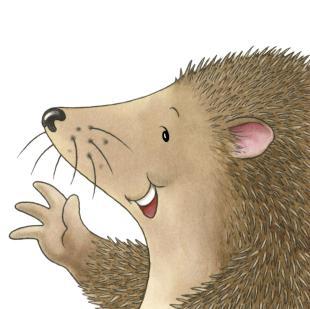


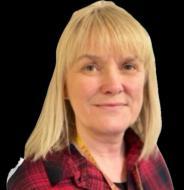

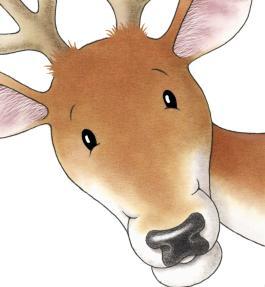
Mrs Cain Mrs Atkins Mrs Boreham
Miss Thomas Mrs Miller
Mrs Norton Mrs Mangham
Mrs Rooney Mrs Pickford Mrs Hill
Mrs Matthews Mrs Buckingham Mrs Groves
Miss Carman Mrs Herban Mrs Buckley Mrs Lorenzi Mrs Bird (Woodlanders)
Mrs Norris (Woodlanders)
Mrs Stapleton (Breakfast club)
Mrs Morris Mary Christie Mrs Watkinson (Woodlanders)
